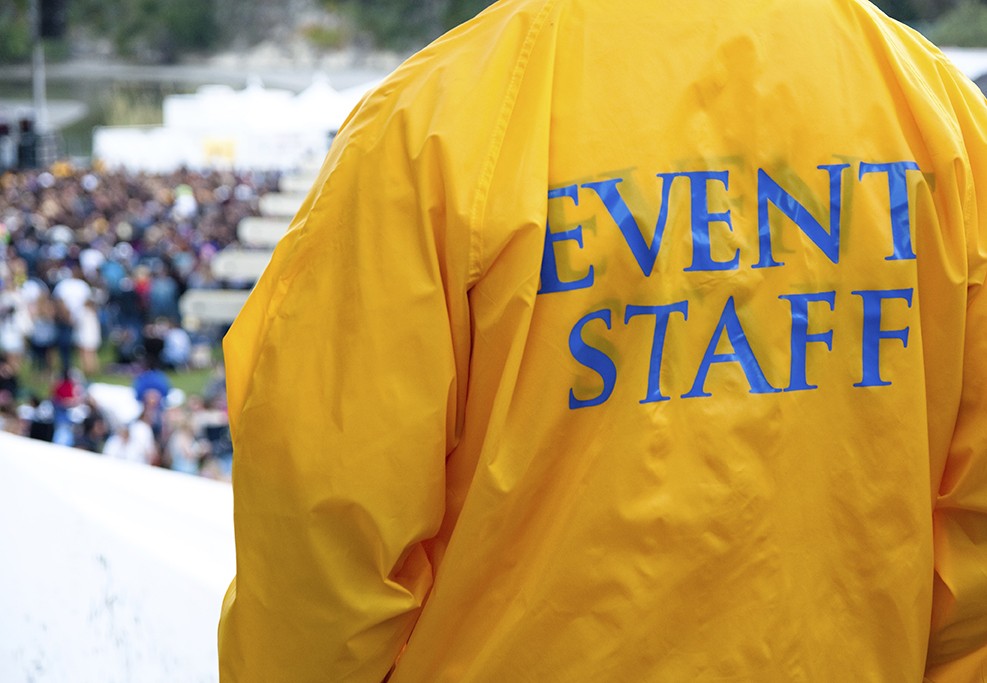Posted April 23, 2020 by National Event Staffing Visit www.NationalEventStaffing.com today!
“Coming together is a beginning. Keeping together is progress. Working together is success.” – Henry Ford
To sum up Henry Ford’s quote, you must bring people together and guide them to ongoing work as a team to find success. You can achieve this when paying careful attention to these five elements of event staff management.
1. Hiring.
Assembling your team is not a job to take lightly. You’ll want to find expert staff to deliver benefits such as increased productivity and minimal training. This means you’ll need to carefully screen candidates. You’ll want to assess their experience, ensure they fit with your brand, and call on their references. Depending on your audience, you also might want to run background checks. And, you’ll want to hire them as W-2 employees to be compliant with Federal law and avoid potential penalties and fines.
2. Onboarding.
Once you’ve chosen the best event staff, proper onboarding brings a variety of crucial responsibilities. First, you must complete all admin tasks, working with HR on paperwork and setting up any necessary accounts. Then, the most critical work begins. You’ll want to start with getting them familiar with your company, its mission and its values. Next, you must train them on the specifics of your event or experiential marketing campaign. This includes your goal, your primary message and talking points, the uniform, rules for etiquette specific to your brand and more.
It may seem early to worry about your event staff’s happiness waning. But, know that the information you give them now is key to their retention. In fact, not grasping responsibilities or getting effective training are the reasons over 40% cite for leaving. This is of the 17% of employees who quit in the first three months, which results in much time wasted in the hiring stage.
3. On-site Management.
While hiring, you may have chosen one or more persons to perform on-site event management. If not, you must do so before your event or experiential marketing activation. These people will need skills above your regular event staff. These include interpersonal, communication, problem-solving and delegation of tasks, when necessary. Otherwise, associated problems may create a bad experience for attendees. And, when consumers can’t trust or have a poor perception of your brand, they won’t buy from you. Worse, they may share their adverse opinions with others, expanding the negative narrative.
4. Payroll.
Event staff often work variable shifts outside of regular business hours. Throw in the fact they’re “off-site,” possibly in other cities or states and/or spread out across different locations. Now payroll just got a little more complex. Some event marketers trust event staff to report hours and submit them on schedule. Others put in place event technology to automate and confirm event staff check-in. Either way, payment must then be made, whether by check or direct deposit. And, all applicable taxes and related withholdings deducted, many of them on a state-by-state basis.
5. Ongoing Communication.
You may have weeks or months when your event staff aren’t needed. Yet, this doesn’t mean you should lose contact. Keeping in touch with your talent is a critical aspect of event staff management. Doing so helps them feel valued. And, this keeps them from being wooed by other brands who know their worth. Messages can be simple. And, app-based event management platforms can help automate communications to make it easy.
At National Event Staffing, we have been sourcing, training, and managing premier event staff for 15 years. We know what it takes to start, progress and guide your event staff to success. Contact us to learn how our experiential employee management services can help achieve your goals.

